Recent Posts
- Building a Robust and Diverse Ecosystem Innovation Ecosystem in the Animal Health Industry
- Cultivating A Champion Culture: Balancing Performance and People in Animal Health
- How Stable are Earnings in Animal Health? Results of the Animal Health Jobs 2025 Salary Survey
- Entry Fees for the Race for Talent: Results of the Animal Health Jobs 2025 Salary Survey
- Looking In The Gift Horse’s Mouth: The Pros and Cons of Counteroffers in Animal Health
Most Popular
-

How Stable are Earnings in Animal Health? Results of the Animal Health Jobs 2025 Salary Survey
-
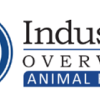
News to Know from Brakke Consulting’s 2025 Animal Health Industry Overview
-

How Will Artificial Intelligence Change Jobs In Animal Health?
-

Entry Fees for the Race for Talent: Results of the Animal Health Jobs 2025 Salary Survey
-

Cultivating A Champion Culture: Balancing Performance and People in Animal Health
Cultural Challenges: Results of the Animal Health Jobs Spring 2024 Attitudinal Survey

Executive Summary
“Purpose-driven professionals and a real commitment to a better health of animals, humans and our planet”Once again, this year’s Animal Health Jobs Candidate Attitudinal Survey explored animal health industry insiders’ attitudes and perceptions about their jobs, their companies, and the industry. Overall, respondents remain positive about their animal health careers and companies.
In 2022 and 2023, we highlighted challenges facing the animal health business culture, with risks related to employee satisfaction and stability.1,2 In 2024 we see signs that the animal health culture itself is at risk, including a doubling of the negative comments used to describe careers. New entrants and experienced individual contributors are struggling with workload and feel unappreciated. We call on industry leaders to take action and get the culture of the animal health industry back on track.
Introduction
The animal health industry relies on the knowledge and dedication of committed people with special expertise to support farmers, pet families and lovers of all shapes and sizes of animals. Every year, we ask our Animal Health Jobs database members about their experience of working in animal health, their opinion of the industry, and their outlook for the future. This is the fourth year of our survey.Participants were members of the Animal Health Jobs database in April 2024. Basic statistical calculations of the results were conducted; statistical significance was set at 90% (p<0.1) and is indicated in figures with an asterisk (*).
Demographics: Counting noses and tails
No general jobs platform can match the industry knowledge and experience of our Animal Health Jobs members. Most respondents (86%) were working in animal health at the time of the survey, and more than half (59%) had spent their entire careers in animal health. One quarter have worked for fewer than 10 years in the industry, while 55% reported more than 20 years of industry experience. One in five (20%) are currently in a clinical role in a veterinary hospital.Participants represent all job levels: 56% individual contributors, 28% first-level managers leading teams of individual contributors, and 16% managers of managers. Regardless of level, our respondents are more likely to be lifetime animal health employees than to have also worked in other industries.
The respondent group skewed slightly female (56%) and overwhelmingly (96%) American, with 36% from the South, 25% from the West, 23% from the Midwest and 12% from the Northeast. Once again men were significantly more likely to be senior managers, while women were significantly more likely to be individual contributors or first-line managers.
Engagement: Here for the long term?
Familiar fields
People working in animal health continue to be committed to the industry, with nearly three-quarters (70%) planning to work only in animal health or noting a strong preference for staying (Figure 1). That commitment deepens with time spent in the industry; the percentage of employees who would easily take a job outside animal health steadily decreases with years of experience. Managers, whether on the front line or at more senior levels, were significantly more likely to report higher levels of commitment to the industry than individual contributors.Figure 1: Career intentions by job level
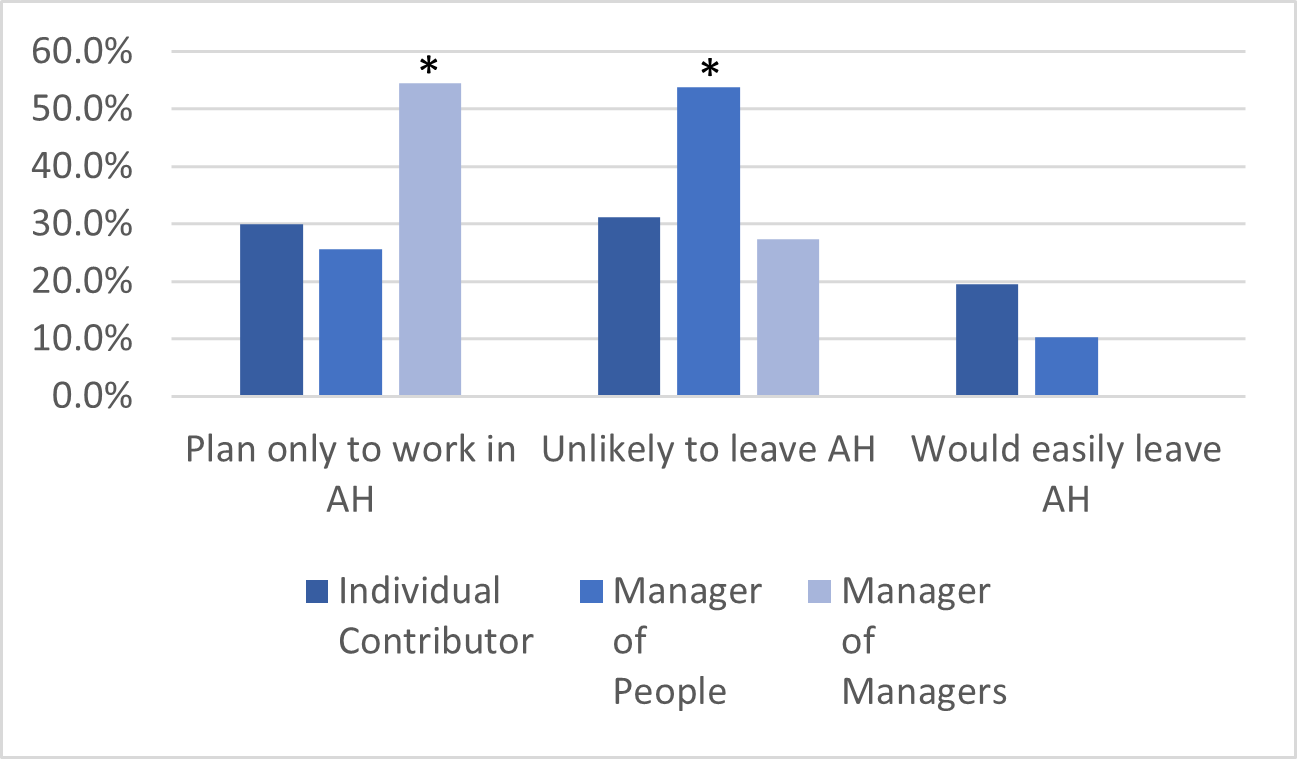
No greener pastures: Reasons for remaining in animal health
Survey participants who were not actively looking for a new position ranked predefined answers to the question, "What makes you stay at your current company?" The ranking in order of importance (most to least important), remained consistent with 2023 results:2- My job - the work is meaningful
- My team - I really enjoy the people I work with
- My compensation - my salary, benefits, and financial incentives
- My manager - I am supported, listened to, and respected
Asked to specify what they would miss the most if they left the animal health industry, 65% of respondents referred to people; 62% of responses specifically mentioned farmers, pet owners, veterinarians and staff, colleagues, and customers. One respondent described the veterinary community at the heart of animal health as ‘The most genuine, passionate & caring group of people you'll ever meet.’ No group, whether evaluated by job level or years of experience, ranked compensation highest among the factors. Employers take note: a competitive salary alone is not enough to keep talented employees on the job.
Changes, challenges and rewards
The top three descriptors of a career in animal health changed slightly in 2024. Although ‘rewarding’ and satisfying’ still ranked first, mentions of continuous change in the industry or a role reached the top 3 for the first time. The animal health industry is in a period of tremendous change, with the introduction of innovative technologies, new companies, and consolidation among both traditional animal health manufacturers and companion animal practices. To employees, this much change can feel like instability, leading to increased employee turnover as associates look for firmer ground. Leaders must manage restructures and transformations carefully, to prevent company change from leading to employee churn.In 2022 and 2023 we warned of concerning trends in employee satisfaction, based on the descriptions respondents gave of their careers.1,2 In this year’s survey, the percentage of negative career descriptors more than doubled, increasing to 23% from 10% in 2023. While employees with 6-10 years of experience gave the highest number of negative responses (40%), at least 1 in 4 of every group with between 6 and 25 years of experience expressed noticeable negativity (Figure 2).
Figure 2: Percentage of negative comments by experience cohort.
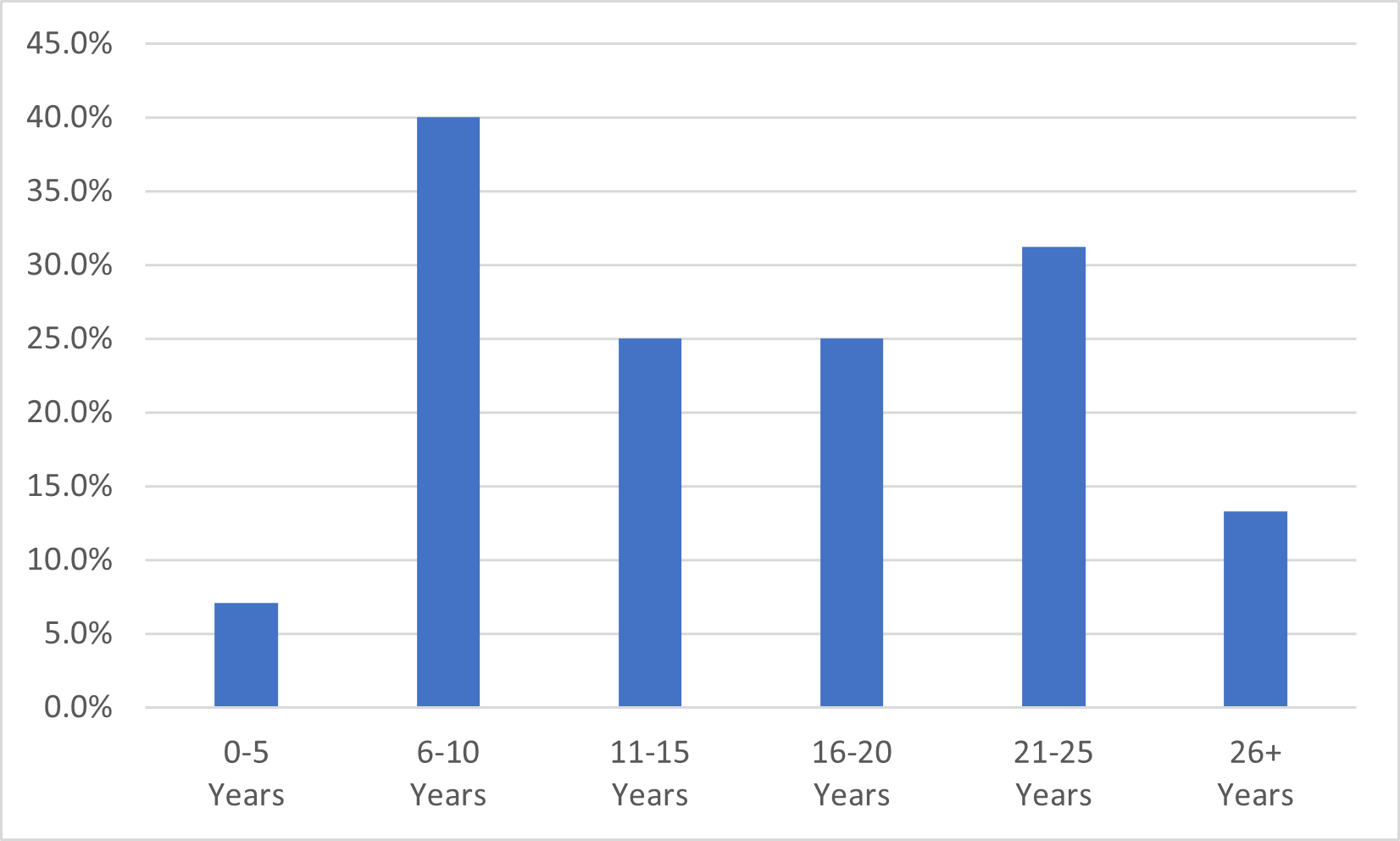
These negative comments included problems of gender inequality, poor pay, demanding workloads, and a change in the culture of companies to focus on profit rather than people or animals. Among these respondents, there seems to be a worrying sense that the special culture of animal health is at risk.
On the other hand, 75% of respondents mentioning challenge positioned it positively, also referring to excitement and opportunities. Overall, 37% of respondents used words like challenging, fun, exciting, enjoyable, fascinating, and opportunity.
Respondents with 10-16 years of experience were most likely to describe their careers as fulfilling or satisfying (44%), meaningful or important (50%), or interesting and fascinating (19%). New entrants reported were significantly less likely to find their work meaningful or important (7.1%) than this more experienced group. Managers of managers were significantly more likely to describe their careers as rewarding or fulfilling than were first-line managers or individual contributors, while employees at all levels used these terms more than negative ones (Figure 3).
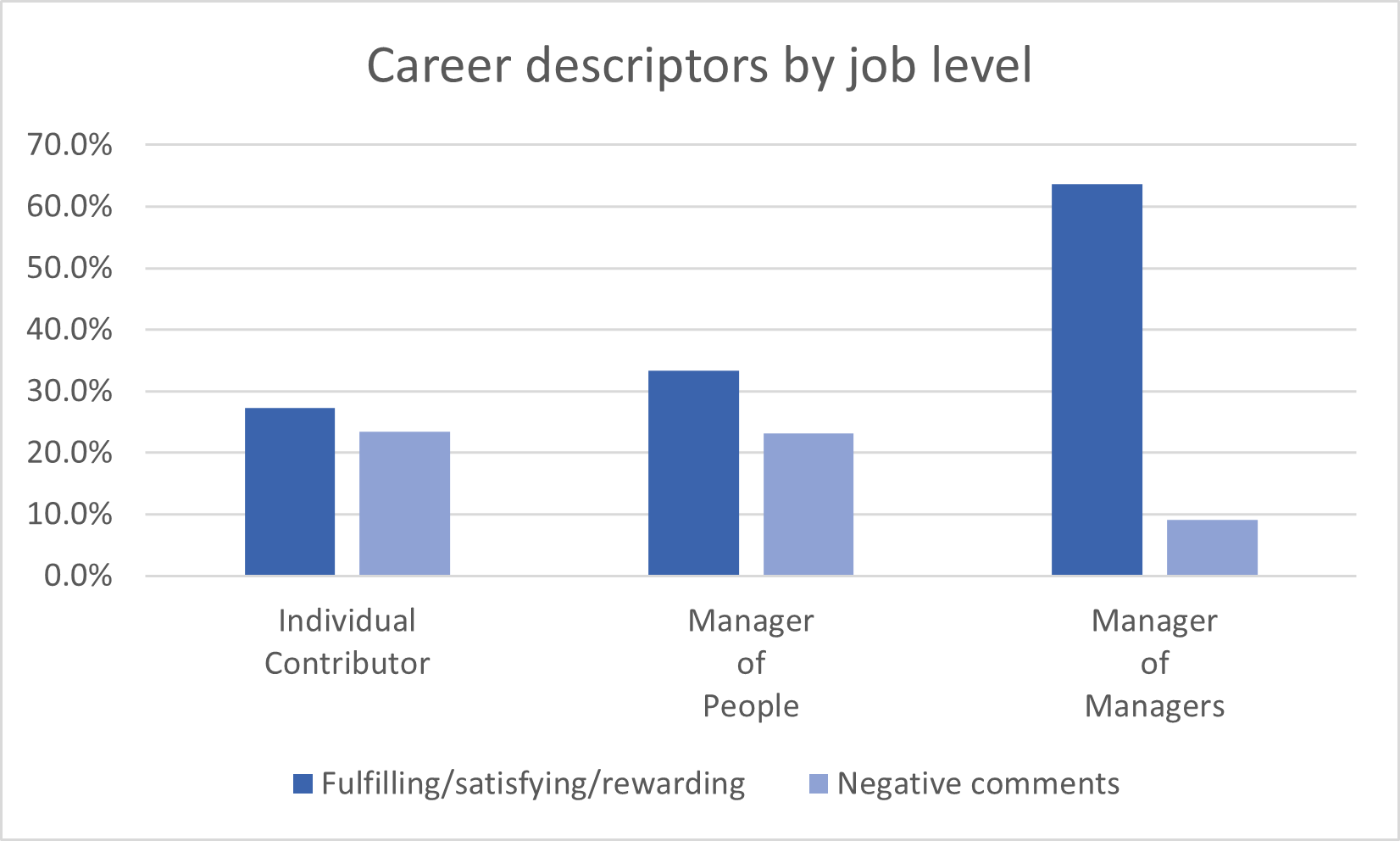
Despite the changes sweeping through animal health, 69% of animal health insiders still see good times ahead. Managers of managers were the most optimistic by far, with 91% expecting a bright future; 75% of first-level managers and 60% of individual contributors agreed.
Animal health remains a happy place - for now
Animal health employees remain a generally happy crowd, with 56% overall happy at work, roughly equivalent to 2023.2 Proximity to animals matters; only 11% of respondents working in clinics reported being unhappy, vs. a significantly larger percentage (26%) of those in non-clinic roles. First-level managers are significantly happier than individual contributors, with mean rankings of 6.9 vs. 5.8 (10-point scale). It can be hard to join the herd; 36% of new entrants are unhappy, and 43% are actively job hunting.Happy to stay…or to fly the coop?
Employees continue to respond and contribute to change. Half (50%) of individual contributors are actively looking for new opportunities. Roughly one-third (32%) of employees are not actively seeking change but are nonetheless open to hearing about new job opportunities in animal health – including 50% of senior managers.Unsurprisingly, 38% of those looking for new jobs in the industry are not happy in their current job. Perhaps more concerning is that 41% of employees looking to make a move within animal health are happy at work. Leaders, we challenge you: are you giving employees enough reasons to stay? The competition for top animal health talent is fierce, with the best workplaces attracting the best talent. Nearly two-thirds (61%) of respondents would recommend their company as a good place to work; unfortunately, as in 2023, nearly 1 in 5 (18%) would not.
Life on the farm
For the first time, we explored employee perceptions of workload, company culture, and recognition, three factors that affect employee satisfaction and engagement.Workload: How heavy is the plough?
Most employees at all levels and years of experience feel relatively comfortable with their workloads, though some may note periods of temporary overwhelm. A substantial minority of respondents noted often feeling overwhelmed at work, to the point that it affects their ability to effectively complete their tasks. This is particularly true for those in mid-career (Figure 4).Figure 4: Percentage struggling with workload
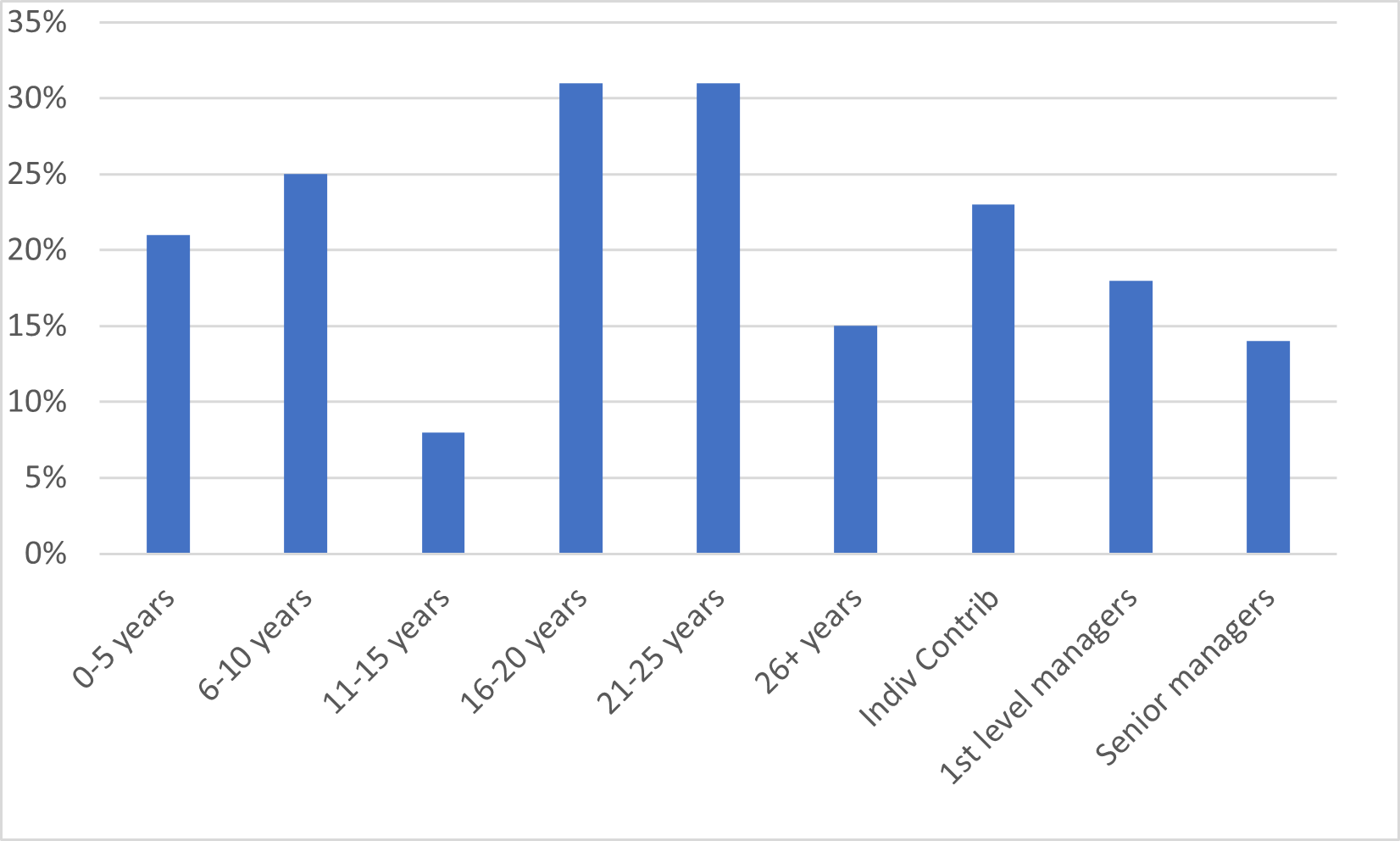
What’s behind this troubling result? Experienced associates often fill keystone roles, with business results riding on their performance. Think of top sales professionals in a highly competitive market, or the marketing manager leading a critical new product launch. Likely to be in their 40s and 50s, these cohorts are also part of the so-called ‘Sandwich Generation’, still raising children at home and beginning to see signs of aging in their parents. They may even be part of what some call the ‘Club Sandwich’: Parents helping their adult children or even grandchildren in addition to elderly parents.3
Almost one-fifth (18%) of first-line managers are also struggling with workload. While often younger than their sandwiched colleagues, they are learning to lead and manage people. This major career step requires learning new skills and forming new relationships. Both require time and mental attention, increasing the time pressure to complete even the most familiar tasks.
Culture: How do we smell?
Company culture is often referred to as ‘the smell of the place.‘ Do animal health companies smell like fresh-cut hay or more like that pile behind the barn?The news is mixed: Most respondents (75%) say that their company promotes a positive culture at least part of the time. Unfortunately, nearly one in five respondents reported that their company failed to promote a positive and inclusive work culture. One respondent felt strongly enough to comment ‘my company does a great job of promoting an INCLUSIVE work environment, but it fails miserably to promote an overall POSITIVE environment’ [emphasis in original].
Individual contributors are most likely to say that their company does not promote a positive or inclusive culture (22%), as are those with 16-20 years (25%) or more than 26 years of experience (23%). Fewer than half of first line (44%) or senior (41%) managers felt that their companies consistently promoted this type of culture -and yet these are the people that executives rely on to implement a culture. Managers who don’t feel embraced by their company’s culture will struggle to help others feel included.
Do I matter?
A culture that recognizes and values employee contributions supports employee loyalty. Here again, while the situation is reasonably calm on the surface, sharks lurk beneath. Overall, 67% of animal health employees feel that their company recognizes them at least sometimes, with slightly more reporting this as sometimes the truth (37%) than as a consistent pattern (30%).Unfortunately, nearly 1 in 4 (24%) feel that their contributions are rarely recognized and valued, peaking at 30% of those with 6-10 years’ experience. Among individual contributors, 60% feel they receive at least some recognition, while 30% report feeling undervalued and unrecognized. Significantly more managers of managers (46%) report consistent recognition, while 23% report none at all (Figure 5).
Figure 5: Recognition by job level
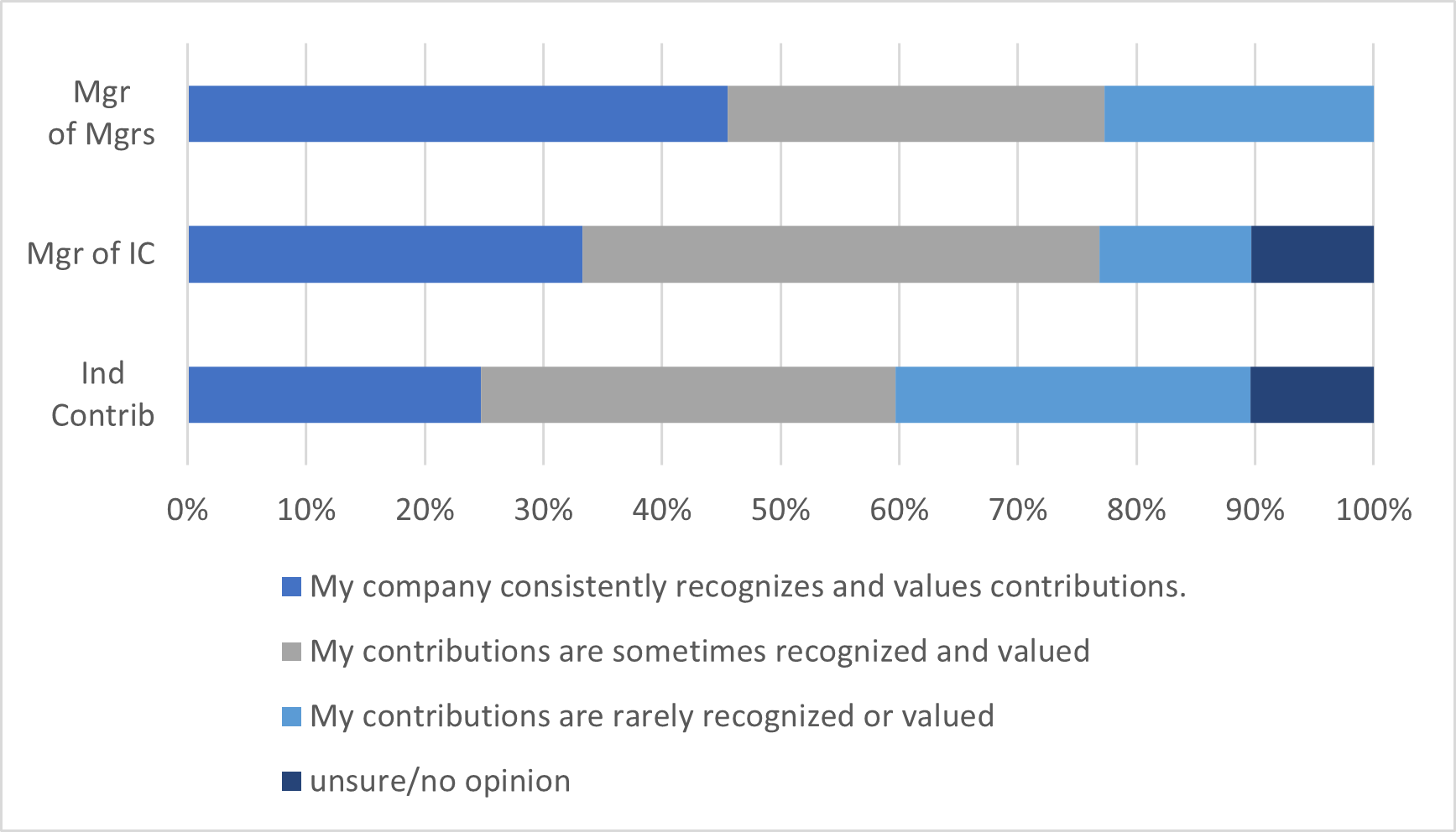
These results are both eye-opening and disappointing. Combined with the verbatim comments about companies becoming more focused on money than people or animals, we are concerned that the animal health industry may be at risk of losing its special feel.
Nurture at-risk groups
Based on these results, we recommend that leaders devote more attention to their company culture, particularly attitudes towards workload and appreciation across the experience cohorts. Companies that capture new entrants’ loyalty will reap the benefits for years to come. Significant numbers of new entrants are unhappy (36%), feel unappreciated (14.3%) or struggle with workload 21% (Figure 6). As a result, 43% are looking for new positions.Figure 6: New entrants’ responses (0-5 years animal health experience)
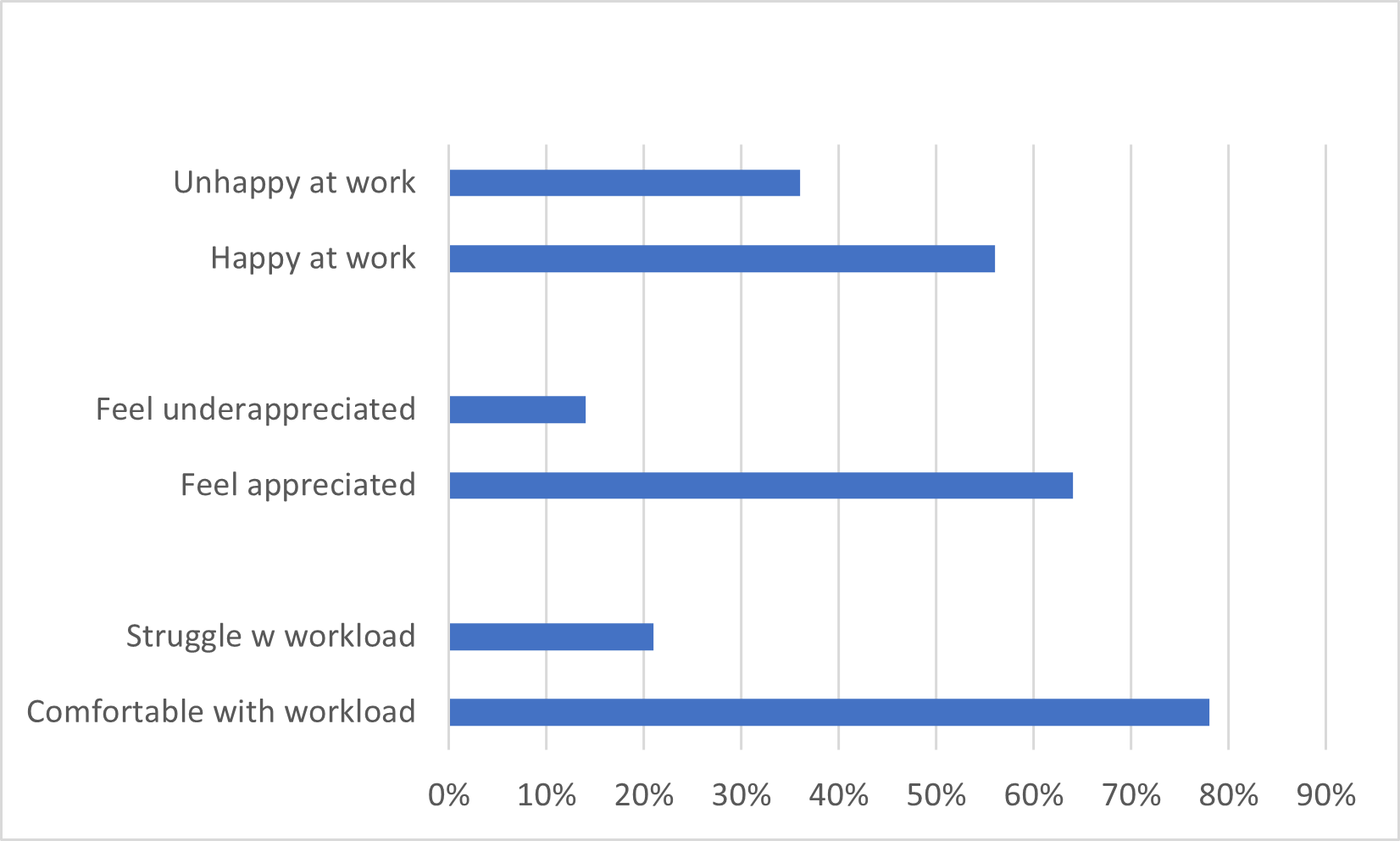
More experienced employees are also calling out for attention, whether individual contributors or managers. As the heart of the company, they teach new entrants about the culture and carry on some of the company’s most important activities. Yet managers don’t see their company cultures as consistently positive, and a third of experienced employees have more on their plates than they can handle. Half of individual contributors are looking for new jobs. How many are in a generational sandwich? How many are tired of being the go-to person for every problem, regularly staying late while colleagues leave for home?
Leaders must identify those at risk who are ‘too good to lose’ and take steps to understand their concerns and mitigate the problems, easing unnecessary burdens and showing meaningful appreciation, while making the most of their expertise. Recognition can be as simple as a private thank you or a call-out in a team meeting, or as significant as extra time off or a one-off bonus. Workload challenges can be lessened by appropriate prioritization and skill building.
Tailor responses to the employee’s needs and accomplishments. Explore flexible work schedules, remote working, or opportunities to mentor less-experienced colleagues. Consider pairing an expert individual contributor and a new entrant. Show appreciation to both. Help first-line managers adjust to their new roles. They are critical to establishing and maintaining a positive, inclusive, and productive business culture. Invest today in high-potential new hires and current essential employees for future success.
Culture is a steeplechase, not a sprint
We call on executives, leaders, and managers at all levels, as well as individual contributors, to recommit to the culture of animal health. Maintaining a healthy culture over the long term requires that leaders pay attention to emerging trends in employee engagement. Employees in the animal health industry are asking for both more and less. More appreciation and recognition for their hard work and contribution to the business’s success. More inclusive cultures, where they can be themselves and do their best work. More stability and less churn.About Animal Health Jobs
Animal Health Jobs, a service of Brakke Consulting, is a speciality marketplace connecting the best animal health and nutrition companies with top job-seekers. We create connections that drive innovation, growth, and the unique animal health culture. Visit us at www.animalhealthjobs.com.References
-
Animal Health Jobs Spring 2022 Candidate Attitudinal Survey. Available at: https://animalhealthjobs.com/blog/3865/animal-health-jobs-spring-2022-candidate-attitudinal-survey
-
Different Kettles of Fish: Results of the Animal Health Jobs Spring 2023 Attitudinal Survey. Available at: https://animalhealthjobs.com/blog/4794/different-kettles-of-fish-results-of-the-animal-health-jobs-spring-2023-attitudinal-survey.
-
Chang, E. ‘The Sandwich generation is Changing. The Stress remains.’ Washington Post. Published 22 March 2023. Available at: https://www.washingtonpost.com/parenting/2023/03/22/caregivers-sandwich-generation/ Accessed 7 June 2024.
-
Brakke Consulting: 2024 Animal Health Industry Overview presented 19 February 2024.



Comments